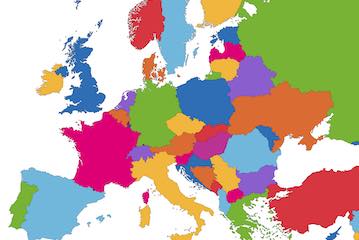
Google is not going to create alternate identifiers to replace third-party cookies
Google’s decision not to support third-party cookie alternatives to track users across the web doesn’t mean that Google is throwing in the towel on targeting. To the contrary, Google advertisers will be able to target users on non-Google sites using Federated Learning of Cohorts (FLoC), a browser-based approach that groups users into “flocks” of other users with similar behavior.
While acknowledging that other companies are building third-party cookie alternatives, Tempkin pointed to statistics indicating that the vast majority of consumers believe the costs of tracking outweigh the benefits, and suggested that if companies don’t address consumer concerns over privacy, “we risk the future of the free and open web.” He also raised the possibility that the alternate identifiers won’t “stand up to rapidly evolving regulatory restrictions”.
Google isn’t giving up on behavioral targeting and says it can be nearly as effective without cookies
Put simply, the FLoC method effectively allows users to be tracked, just as part of a larger group instead of on an individual basis. According to Google, “Our tests of FLoC to reach in-market and affinity Google Audiences show that advertisers can expect to see at least 95% of the conversions per dollar spent when compared to cookie-based advertising.”
An increasing amount of advertising activity takes place off the web, in mobile apps. Despite the pandemic, last year, mobile app ad spend grew 26% to reach 0bn according to App Annie.
There’s skepticism in the industry, however, which means that marketers will likely want to take a wait-and-see approach before drawing conclusions about the efficacy of FLoC and similar technologies.
Google’s commitment applies to the web, not mobile
Given the size of the mobile app ad market, it’s important to note that Google’s new commitment only applies to the web, not mobile. On mobile, Google has not announced any plans to stop supporting Advertising ID, a unique, user-resettable ID that can be used to track users in apps.
According to David Tempkin, Google’s Director of Product Management for Ads Privacy and Trust, once third-party cookies are phased out, the search giant “will not build alternate identifiers to track individuals as they browse across the web, nor will we use them in our products.”
First-party data is becoming more and more valuable
Because publishers will still be able to sell ads on their own sites using their first-party data, and marketers will still be able to use their first-party data to target ads on third-party sites, Google’s latest announcement is above-all a reminder of the increasing value of first-party data.
Whether that’s true or not, it does appear that Google’s position in digital advertising will only be strengthened in a world without third-party cookies.
Of all companies, few have as much valuable first-party data as Google. The search giant collects vast troves of data about its users from its portfolio of widely-used properties, including Search, YouTube and Maps. It will still be able to use this data when selling ads on these properties and for this reason, Google critics suggest that the company’s pivot to privacy is really less about privacy and more about maintaining its dominance.
Google has tons of first-party data
For more on data and analytics, see our Best Practice Guides:
Already, many brands have been investing heavily in acquiring first-party data and as the cookie-less world becomes a reality, the first-party data arms race will likely become even more intense, with companies that have large amounts of high-quality first-party data establishing an even greater advantage over those that don’t.
Contextual advertising could make a comeback
Ironically, the demand for first-party data could raise the stakes in the privacy fight, as even though third-party cookies won’t be tracking consumers across the web, companies will likely be gobbling up more and more of their data, raising a new set of concerns.






